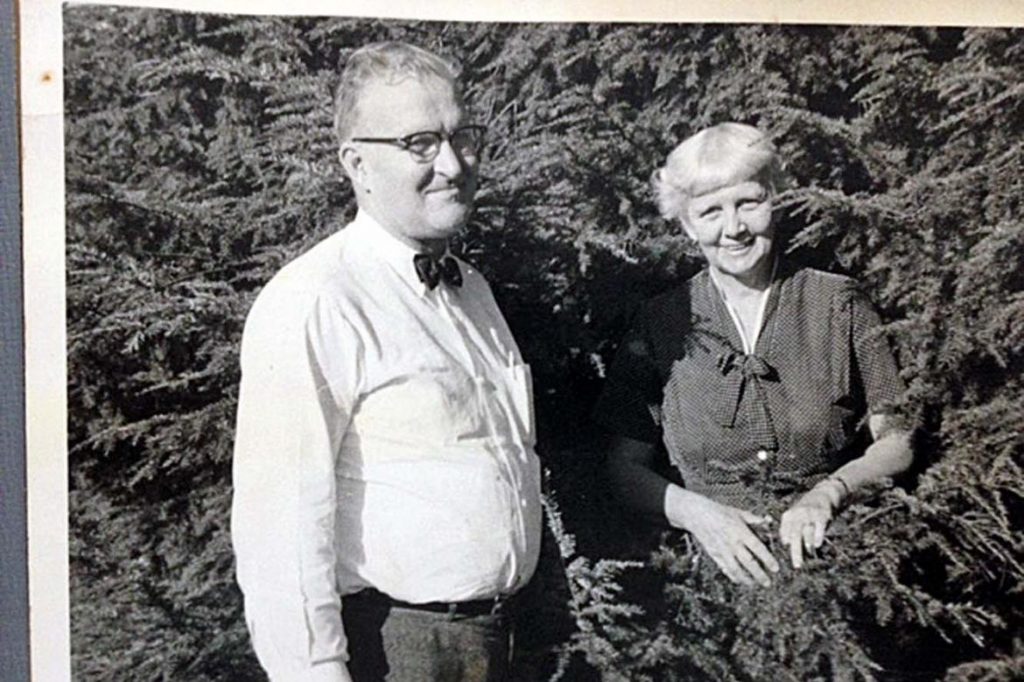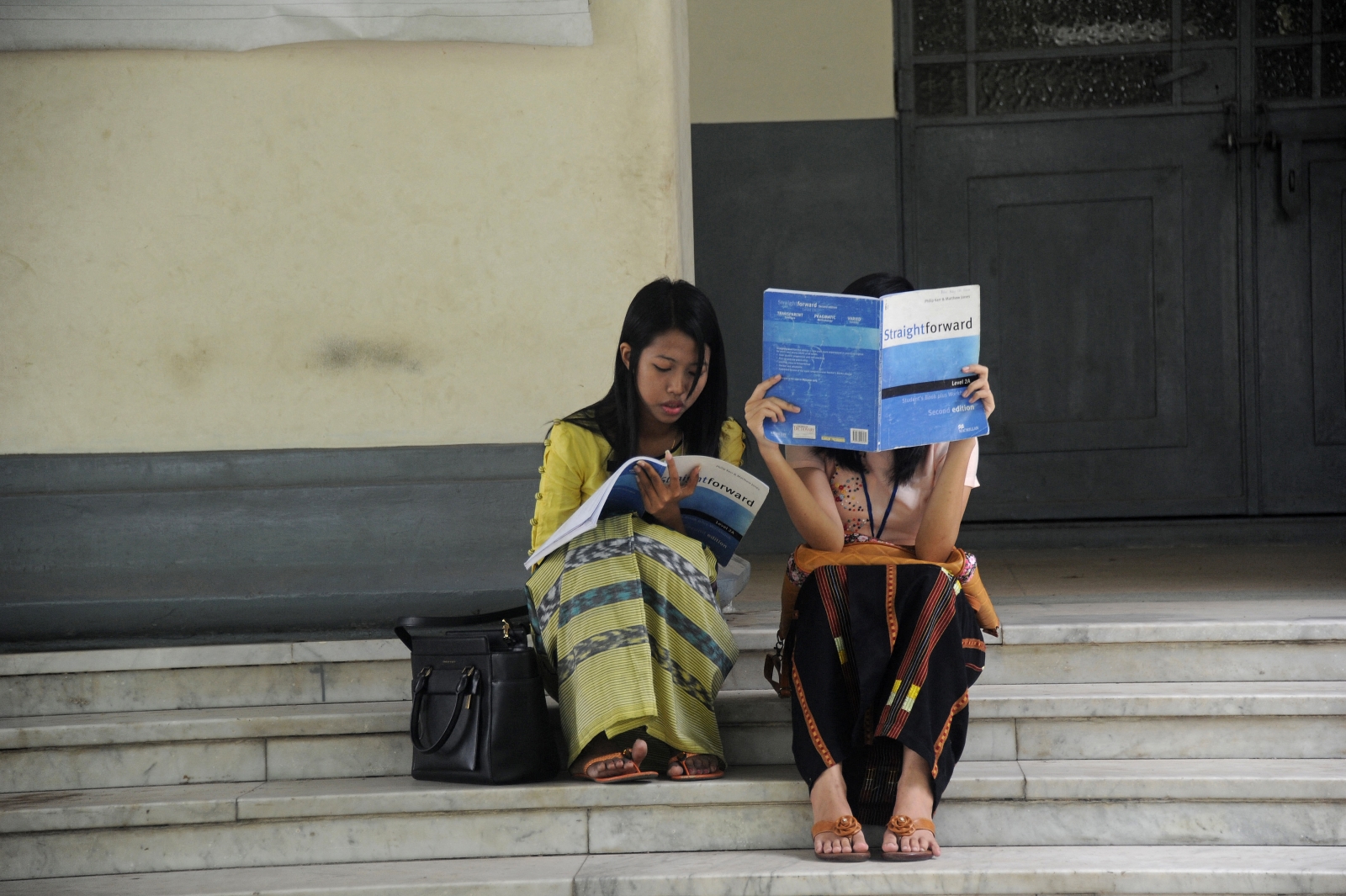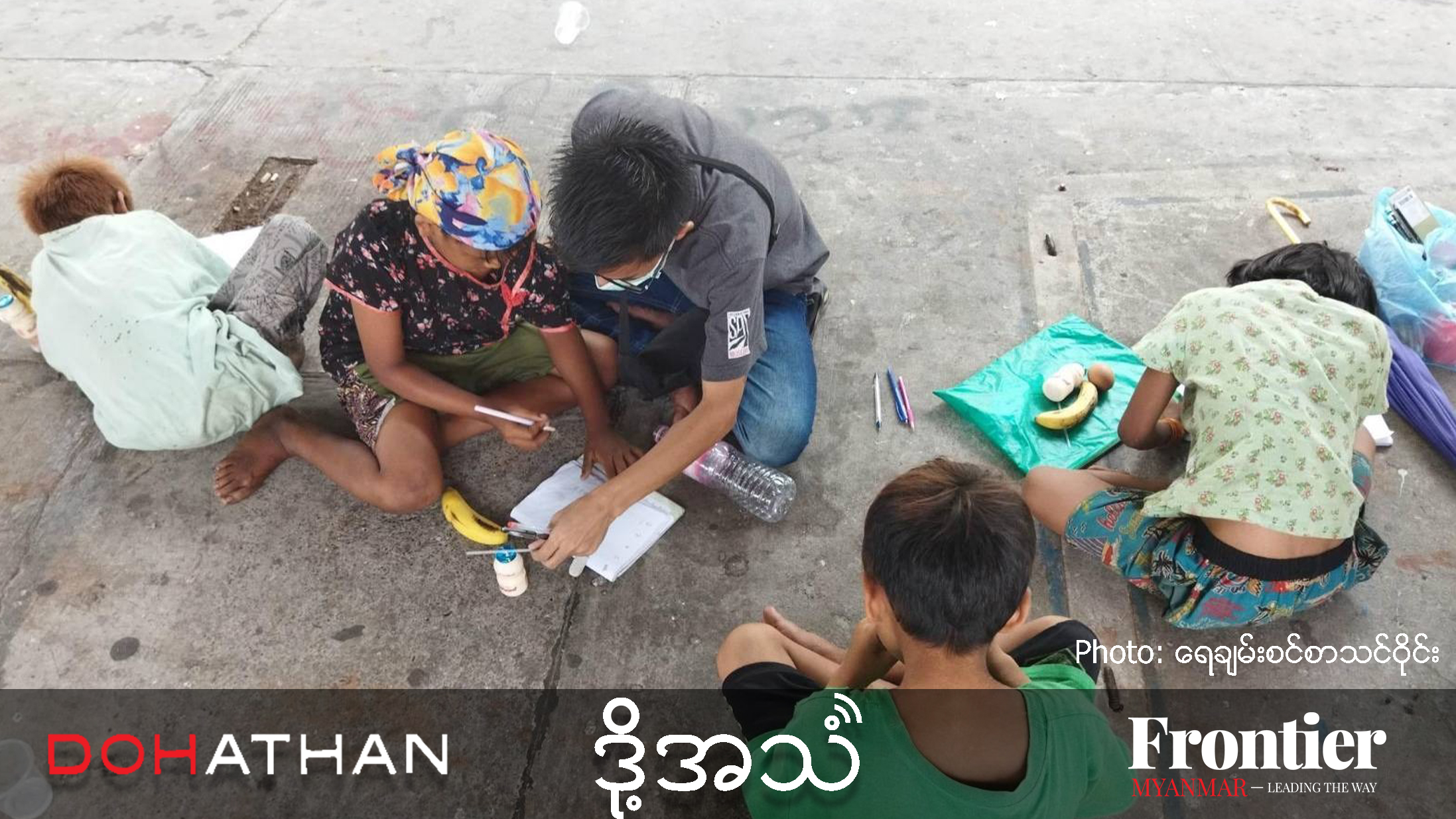Scholarships funded by a foundation with historic links to Myanmar have been turning dreams into reality for deserving students for 25 years.
By AUNG TUN | FRONTIER
I COME from a small village in Ayeyarwady Region and am descended from a long line of poor farmers. Despite our situation, my family, and especially my mother, was determined that I should be well educated and I was sent to Yangon to attend high school.
It was an experience that helped me to appreciate the importance of education as a powerful tool for personal and national development.
Education has helped to define my career; it will enable me to make a meaningful contribution to Myanmar and has helped me understand the changes needed to ensure a better future.
Nelson Mandala once said: “Education is the most powerful weapon that we can use to change the world.” I couldn’t agree more.
Support more independent journalism like this. Sign up to be a Frontier member.
Decades of military rule have left Myanmar with an education system that has been unable to provide the skills, expertise, experiences and learning environment necessary for effective schooling. This is why many young Myanmar dream of being able to receive a quality education abroad. It was my dream, too, but I thought it would only ever be a pipe dream.
In early 2007, when I was working as a journalist in my first professional position, I visited the American Center in Yangon and saw a notice about a scholarship from the Cetana Educational Foundation.
The foundation was formed in the United States in 1993 to provide educational opportunities to the people of Myanmar.
I could not resist applying, despite only one scholarship being offered each year for study in the US, Thailand, Malaysia or the Philippines, and the successful applicant being required to return to Myanmar after completing their studies.
Eventually, I was invited to be interviewed by Ms Jean Dickason, the foundation’s chair. She is one of the three children of Mr Frederick Dickason, a science professor, and his wife, Bertha, a nurse, who came to Burma in the 1930s and left in 1966. At the invitation of Myanmar educators, the three Dickason children returned in 1990 for a visit that inspired them to form the foundation with friends three years later.
A few days after the interview, Dickason telephoned to say I needed to fill in another form and I began to wonder about dreams coming true.
In April 2007 I received the welcome news that my application had been successful.
Until that time, I didn’t know anything about the smiling American woman and why her foundation was helping myself and others to study abroad.
The foundation defines “cetana” – a word from Pali, the ecclesiastical language of Theravada Buddhism – as giving without expectation of a return, a concept that is a perfect match with the friendly smiles of Jean Dickason.
Many of my compatriots who were awarded Cetana scholarships had similar experiences.
They include Ko Kyaw Oo, who studied natural resource management in Thailand on a Cetana scholarship he was awarded in 2003, when there were few scholarship opportunities for Myanmar students. He is now contributing his expertise to a sector of crucial importance to Myanmar’s future.
“The Cetana scholarship was absolutely a life-changing experience,” said Kyaw Oo, who comes from a village in Mon State. With Cetana’s support, he helped to build a small library in the village in 2014. Cetana donated some of the books for the library, he said.
The significant contribution that Cetana has made in providing educational opportunities has been built on the special bond that Frederick and Bertha Dickason had with Burma and the altruism of their children.
Frederick worked as a professor of botany at Judson College in Rangoon after he and Bertha arrived in Burma in the 1930s. They left the country during World War II and on their return, Frederick continued to teach at the college, then part of the University of Rangoon. Bertha did medical relief work and started a hospital.
Growing up in Burma gave their children – Jean, Lois and David – a strong attachment to the country, which explains their role in forming Cetana after seeing during their visit in 1990 how higher education had suffered under military rule.
The foundation’s aims are in line with State Counsellor Daw Aung San Suu Kyi’s opinions on the importance of a good education. She has said that Myanmar needs to produce young people who are capable of meeting the challenges of the future.
Aung San Suu Kyi has also said that “change must be started in education”, a view that reflects the emphasis that Cetana places on education that focuses on developing analytical skills and critical thinking instead of being based on rote learning and memorisation.
On November 3, Cetana celebrated its 25th anniversary. As Myanmar continues a challenging transition, there is huge demand for educated professionals. Cetana stands as ready to help now as Frederick and Bertha Dickason were in the 1930s and the foundation’s founders and members have been for the past 25 years.







